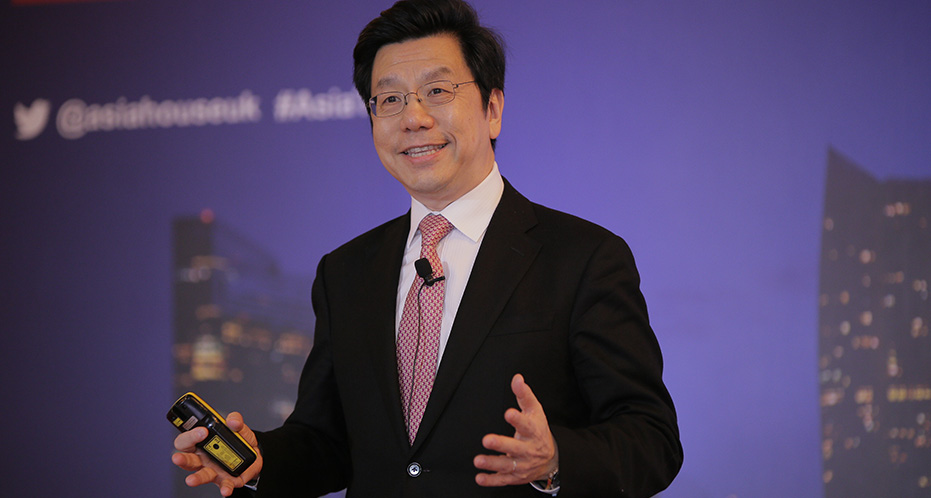Driving commercial and political engagement between Asia, the Middle East and Europe
Driving commercial and political engagement between Asia, the Middle East and Europe
Driving commercial and political engagement between Asia, the Middle East and Europe

China is catching up with the US in the Artificial Intelligence (AI) race, according to one of the world’s leading authorities on AI and innovation.
Speaking at Asia House’s major trade conference in Singapore, Kai-Fu Lee, Chairman and CEO of Sinovation Ventures, outlined the latest capabilities in AI, and how US and Chinese approaches to the technology differ.
“China may not be ahead in research – the US has 11 times more researchers than China,” Dr Lee said. But it is data that is crucial to the implementation of AI technologies, with the higher quantity of data generating better outcomes.
“Nothing is as important than massive amounts of data,” Dr Lee said. “There is no data like more data.” And in this respect, China is well ahead of the US, with more consumers and a dynamic digital economy.
“Takeout [meals] are 10 times more than the US, China’s shared bicycles are 300 times more, and China’s mobile payments are 50 times more than the US,” Dr Lee said.
“In the age of AI, if data is the new oil, China is the new OPEC.”
In a fascinating presentation, Dr Lee outlined the applications of AI, from people’s phone-charging habits contributing to bank loan decisions to criminals in China being apprehended via facial recognition technologies.
He then took part in a discussion with Michael Lawrence, Chief Executive of Asia House, where he reflected on the business impact of AI and the implications for jobs.
There will also be implications for countries which aren’t engaged in the AI race, particularly developing economies, Dr Lee said.
“Previously they could look forward to the China model or India model of outsourcing blue collar work or white collar work. But if those jobs are routine in nature, then they are by definition ‘doable’ by AI. So the China and India models towards development are no longer a viable option.”
But for developed countries, Dr Lee is more optimistic.
“Some countries still have a shot, if they get their national policies in order. The UK, Canada, Singapore, Israel, France, are some examples.”
So, what will the next big breakthrough in AI look like?
“Making autonomous vehicle (Level 5) suddenly work,” Dr Lee said. “That would be a huge breakthrough.”
Another big step would be the ability to achieve high performance AI without the need for high levels of data. “Figuring out how to train AI with less data, that would also be a huge breakthrough,” he said. “But it would also neutralise China’s advantage.”
Watch Kai-Fu Lee’s presentation and Q&A with Michael Lawrence.
